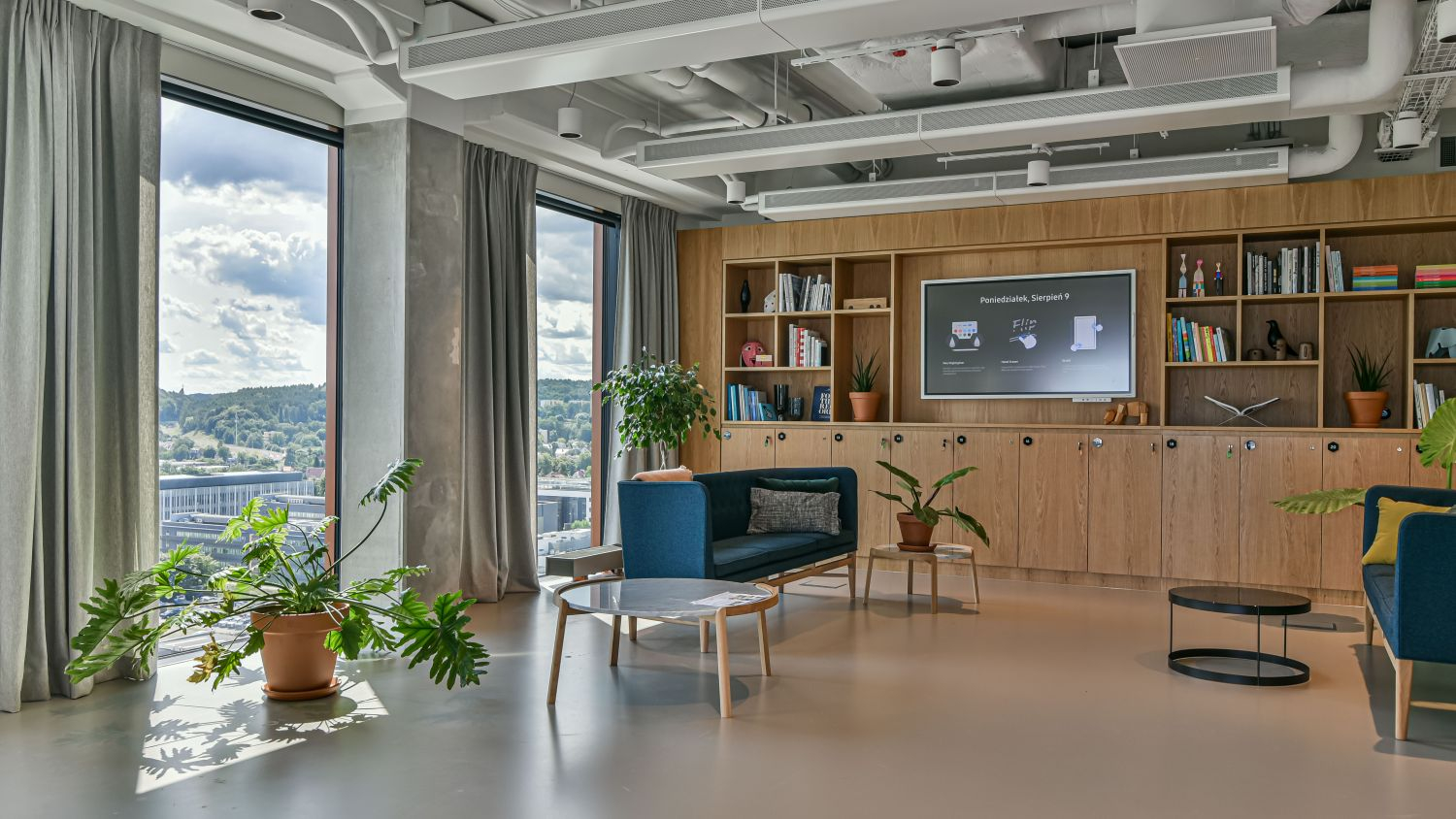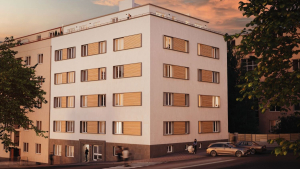
Among four countries – Poland, Romania, Czech Republic, and Hungary, more than half of respondents claimed they work only from the office (52%), according to a survey conducted by Skanska's commercial development business unit in CEE. The number of such office workers increased compared to May 2021, especially in the Czech Republic and Poland. The preferred work model has not changed much since then, but in the Czech Republic more people want to work only from the office (22% vs 17% in May 2021).
The results show that these days as many as 52% of office workers go to the office every day, while in May there were 48% respondents who claimed to do so. One in two employees would like to work in the office at least for most of the week. A full-time home office, on the other hand, was preferred by one in five respondents. “Over the last 11 months, we have regularly reviewed our employees' attitudes to working in the office and working from home during the ongoing pandemic. Our research shows that some trends are changing significantly, and some have become part of the office landscape. For example, since our spring survey, the number of people working exclusively from the office has increased. Still, the hybrid model of work, where you come to the office 3-4 times a week, is invariably the most preferred,” says Arkadiusz Rudzki, Executive Vice President for Leasing & Sales at Skanska’s commercial development business unit in CEE.
Polish employers are the least flexible
One in three employees claims that their employer imposes an exact type of hybrid model with limited possibility of change. Poland is the least flexible among them. On the other hand, one-third of Hungarian and Romanian office workers are free to decide about how many days they work from home or in the office. Every third company operating in the hybrid model has its own office work planning system, and Romania is the best organized in this regard.
“Hybrid work requires flexibility also in terms of team management. Employees expect some compromise when it comes to scheduling working days from home and in the office, while employers may not always give them enough freedom. Poland is the strictest in this respect. Only 19% of Polish employees, with the average for the region at 27%, admitted that they have complete freedom in managing work from home and office. This approach results from the organizational culture in our region, but it is worth emphasizing that the expectations of employees are one thing, while it is also important to maintain the operational effectiveness of the business. It seems that the search for the most optimal, mutually satisfactory solution is currently one of the biggest challenges employers face, especially as working in this model will stay with us for longer,” adds Arkadiusz Rudzki.
Work-life balance in the middle of the pandemic
The home office has the most positive impact on work-life balance among the measured aspects – especially in Hungary and Romania. There is a noticeable shift in terms of perceiving this aspect in earlier studies, as it was one of the biggest challenges for most of the respondents back then. Now 55% say otherwise. It shows a need to consider and implement solutions in offices that help to save time during a workday.
“Despite the fact that employees started to manage their work-life balance more effectively, perhaps because they got used to the situation and developed a substitute routine, we cannot forget that the office plays three important roles: integrating, culture-building and team-building. Therefore, employers should want the office workers to return to the office spaces. Companies face the challenge of enabling employees to integrate more effectively between personal and professional matters. Services that help save time, such as concierge, kindergartens on the ground floor, or the office location in an easily accessible part of the city, will undoubtedly mean something here,” says Karolina Radziszewska, Executive Vice President Human Resources at Skanska’s commercial development business unit in CEE.
Mental health is more important than ever
Over 40% of respondents believe that working from home has a good effect on their mental health. According to the newest survey, office workers mostly face loneliness, frustration and job insecurity. Staying at home brings freedom and peace. It means that employers should pay particular attention to mental health and create an office workplace adjusted to their needs.
The vast majority of office workers claim that mental health support should be offered to office workers. Paid leave in case of professional burnout and free individual sessions with a psychologist are most desired from employers to support office workers' mental health. Romanian office workers perceive the home office more negatively than others. Loneliness is a problem of Czechs, while the feeling of being overwhelmed affects Hungarians.
“In my opinion, the pandemic opened us up to a conversation about mental health in the workplace. Our research shows that approximately 77% of office workers in those four countries believe that the employer should guarantee them support in this regard. Almost 50% support paid time off due to burnout, so I am glad that governments are trying to develop a more worker-oriented environment. In Poland, from January 2022, burnout will allow an employee to receive sick pay. I think well-being programs are the future of proper talent management,” comments Karolina Radziszewska.
Home office is not a perfect solution
Limited work in the office has a negative impact on social aspects – integration of new employees and relationships between workers. Additionally, working from home has more negative than positive impacts on teamwork. One-fifth of Romanian office workers claim that it helps them build a harmonious team.
Almost half of office workers seek extra activities in the office. Meetings with interesting people, massages, shared meals in the office, and offsite events encourage working from the office more often. Office workers can also be encouraged to work from the office by various forms of free meals. A well-stocked kitchen and co-financing meals in the form of a pre-paid card are the most desired options.
Fear of contracting the COVID-19 virus in the office is also gaining importance – a quarter of all employees in CEE and almost 40% in Romania. The results show that high sanitary standards, i.e. certificates like Well-Health Safety Rating, can encourage working from the office, while their lack leads to fear of contracting the virus.
The study was conducted by the research and analytical company Zymetria on behalf of Skanska, the biggest office developer in Europe. As part of the quantitative online survey using the CAWI method, responses were collected from 2,000 office workers living in large cities in four countries – Poland, Romania, the Czech Republic and Hungary.



